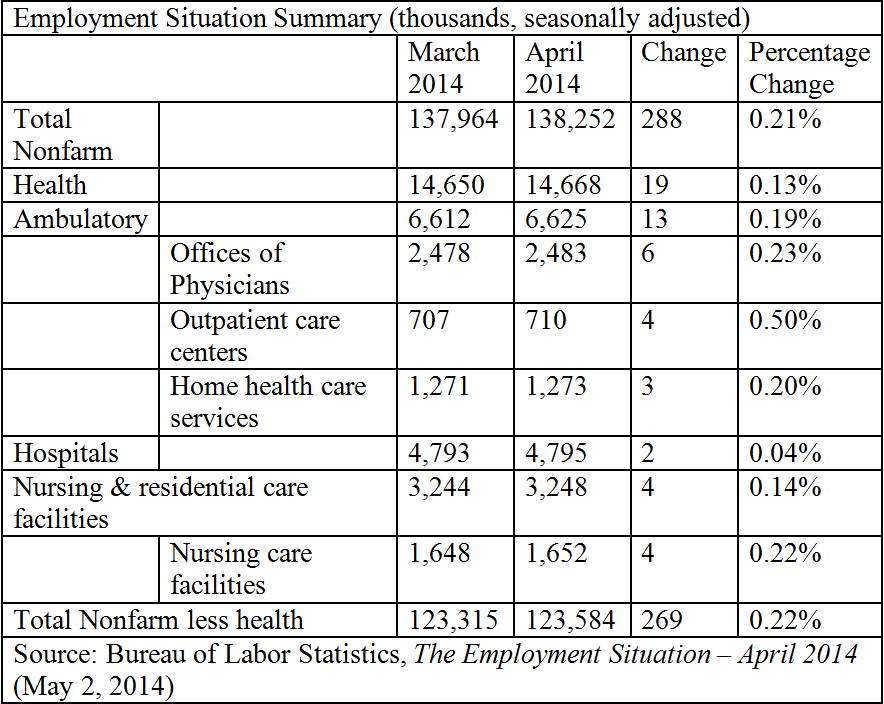Health Care Workforce Continues to Shift Out of Hospitals
Although the Bureau of Labor Statistics latest employment report shows that health care continues to add jobs at about the same rate as the rest of the economy, the shift of jobs to out of hospitals continues.
From March to April, hospitals barely added two thousand new workers. Physicians’ offices, on the other hand, added six thousand, while providers other than hospitals added jobs at a faster rate than hospitals. This is a trend that has persisted for months.
Hopefully, it portends a change in practice to lower cost settings. Nevertheless, hospitals are still adding workers. The hospital lobby often complains that reduced government reimbursement is causing cutbacks. The data do not confirm this.
Further, the unemployment rate in the education and health services sectors is just 3.7 percent (only government workers, with an unemployment rate of 2.7 percent, are doing better). Were the hospitals to actually reduce their workforce somewhat, we could plausibly anticipate that many of those workers would quickly be picked up by physicians’ offices and other health-services providers.



It has been known for a while now that there has been a shortage of doctors. Add on top of that the fact that it takes the most amount of time of any of the fields and you will understand why the growth rate is slow.
You don’t really conclude as to whether you think this is a good or bad statistic. However, I think this might be good because physicians and these other lower-pedigree fields have easier access than doctors, and costs will likely be lower.
I certainly hope so, Becca! I believe that doctors should be reserved for serious medical emergencies as opposed to standard physicals or check-ups which really any of these fields could do.
I don’t necessarily agree with that, because lower-pedigree fields mean lower quality. I would much rather see a doctor than a physician any day because they would be much more reliable.
Good luck with that, because the wait time to see a doctor will probably be 10 times longer now under ACA, once it begins to take full effect.
Thank you for your comments.
No, I don’t come to a strong conclusion. I previously wrote that it might be slightly positive because outpatient facilities have somewhat better financial incentives than hospitals do.
Just to be clear: This reports employment by type of facility, not by profession. It does not tell us who is a physician, nurse, electrician, or filing clerk. So, comments about physicians versus other health professionals are off the mark.
This can likely be due to alternatives to hospitals, especially in emergency and urgent care. Near where I live, we have seen an urgent care facility and a stand alone ER built just recently.
Many of these places are also sponsored by the large hospital chains. Employees get to work in a small clinical setting while receiving the perks of being employed under a large healthcare organization.
These stand alone facilities definitely improve access to care.
It would be interesting to find out why the increase of employment to physicians offices. I wonder, like previously debated on this blog, if these offices are being run with one physician and a number of nurse practitioners or PAs.
“only government workers, with an unemployment rate of 2.7 percent, are doing better”
Because during a shutdown, they don’t lose their jobs, they just get a little vacation.
Without pay as well, mind you.